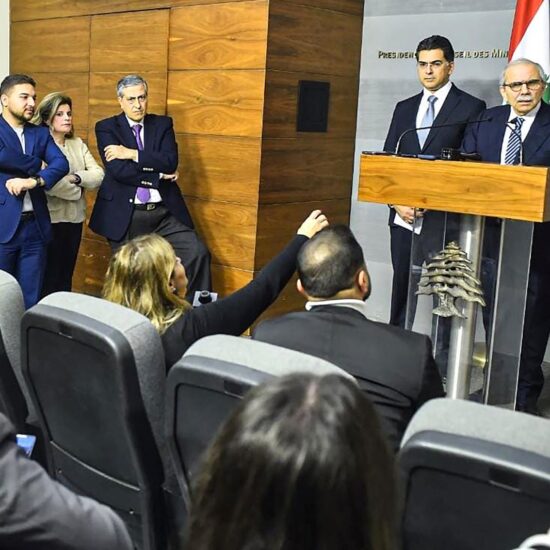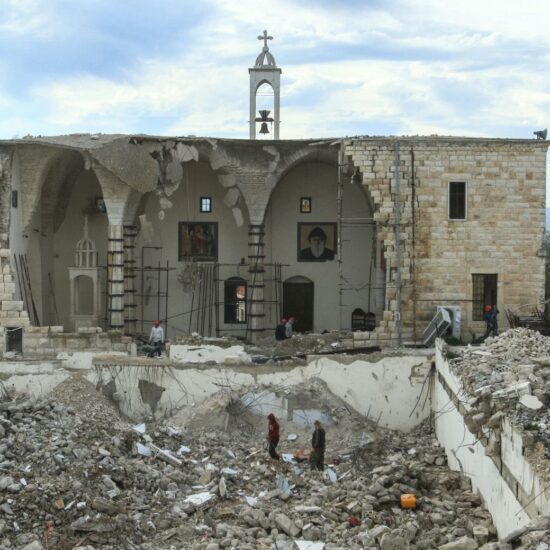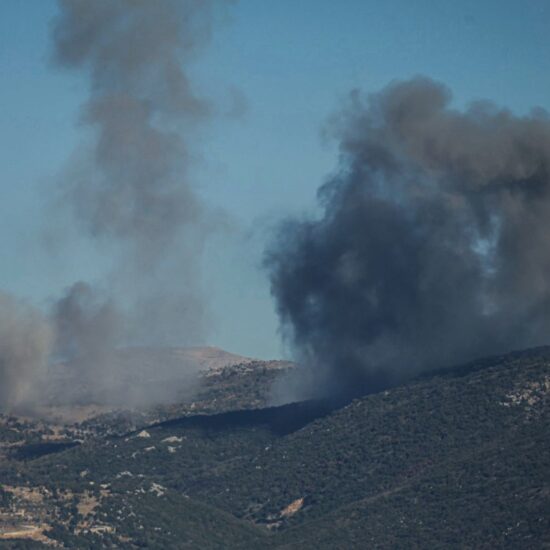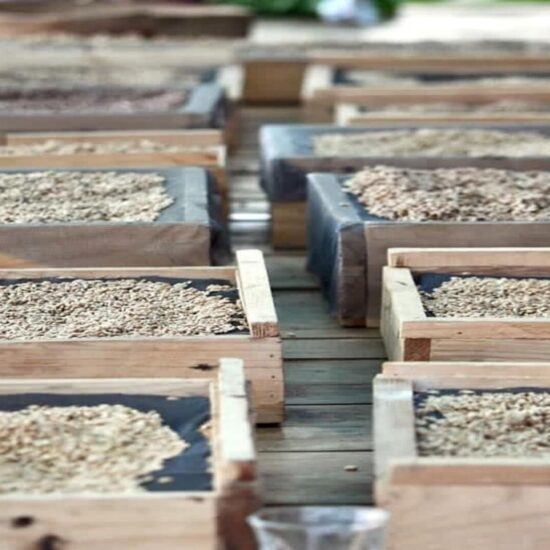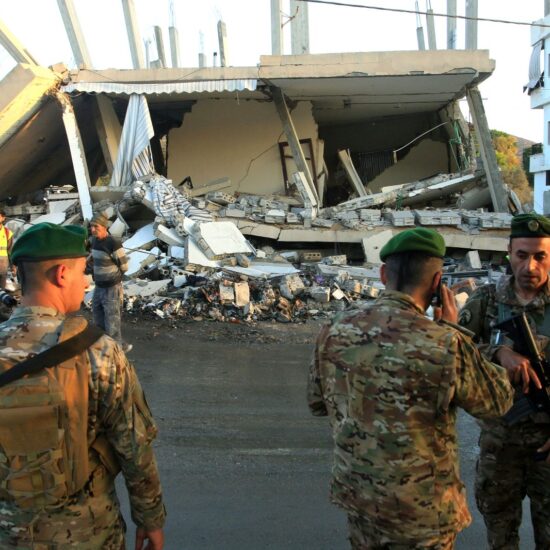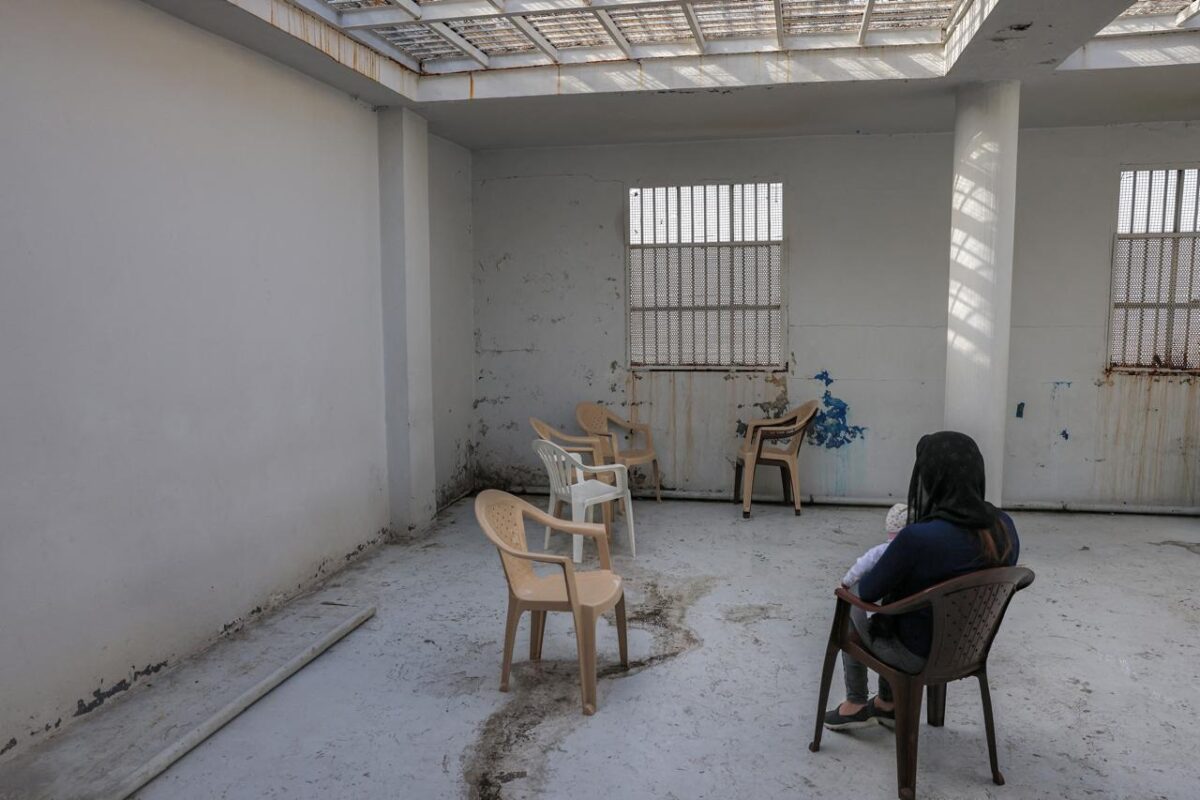
While inmates from Baalbek and southern areas’ prisons have been transferred to more secure facilities, Lebanon’s acting Public Prosecutor Jamal Hajjar issued a directive to expedite the release process for those held in pre-trial detention. However, more than a collateral damage, that of prisons’ overcrowding in Lebanon must be addressed a structural problem
As the ongoing Israeli aggression on Lebanon has already forced 1.4 million people to flee areas under massive bombardment, a category of people remains trapped in between. It’s that of prisoners, denied, by definition, the right to move.
One of the so-called ‘collateral effects’ of the ongoing war in Lebanon between Israel and Hezbollah has been, in fact, the worsening of prison overcrowding, which was already exceeding, in August 2023, 323% of capacity. The surge is due in part to the transfer of around 600 inmates from Baalbek and southern Lebanon prisons – in the midst of Israeli attacks’ crosshairs – to more secure facilities: safe, at least, from the threat of airstrikes. Yet subjected to a number of other risks: food insufficiency, lack of hygiene, and neglect of health care. All problems connected, more or less directly, to the structural issue of detention centres’ overcrowding.
Of the country’s 25 official places of detention, in fact, only two – Roumieh and Zahle prisons – were expressly designed to serve as penal facilities, a needs assessment published in 2022 by Italian NGO ARCS revealed. The remaining sites, which were originally intended and previously utilised as police stations and warehouses, are located in the basement of military barracks; inside office spaces and centres of various branches of the security forces; and in dilapidated serails dating back to the Ottoman era. In practical terms, this means that the vast majority of prison cells are presently devoid of proper ventilation and daylight, much less heating and air conditioning.
Along with the gravely insufficient physical infrastructure of the system, another of the main reasons of Lebanese prisons’ overcrowding is, according to a report published by Amnesty International in 2023, the widespread phenomenon of pre-trial detention, under which around 80% of detainees are held: numbers that, although considered exaggerated by some – who estimate the number at around 30% -, were confirmed by Human Rights Watch, according to whose data – provided by the country’s Internal Security Forces – detention centres across Lebanon have a total capacity of 4,760, but hold about 8,502 people, only 1,094 of whom had been sentenced.
In response, at the end of October, Acting Public Prosecutor at the Court of Cassation, Jamal Hajjar, issued a directive to all courts and judicial services across the country, instructing them to facilitate the release requests of prisoners held in pre-trial detention. “The detainees are permitted to sign release requests within their prison facilities,” the directive stated, assigning the National Human Rights Commission the task of collecting these requests and forwarding them to the appropriate courts in coordination with the Internal Security Forces (ISF). “The courts are expected to address these requests with the desired expediency,” the document continued.
However, more than a real instruction committing the judges, Hajjar’s memo looked more like “a recommendation, something we would mention to support the attorneys’ requests for release, yet not binding to the judges,” said lawyer Diala Chehade, expert in International Criminal Law, interviewed by NOW Lebanon.
‘Facilitating’ impracticable release requests
The pre-trial stage is the part of criminal proceedings that takes place between opening of the case and the start of the court proceedings. “By its legal nature provisional, held during the interrogation or the investigation in an alleged crime, the law sets certain timelines for this provisional detention, according to the case,” lawyer Chehade explained.
If the person in detention is still being interrogated, for example, the Article 108 of the Code of Criminal Procedure sets a time-limit of four days, before the individual is either released or charged with a particular crime in refer to the investigative judge. The investigative judge himself faces limitations by the same code, according to which, if the crime being investigated is of a mild nature, what is technically called a ‘misdemeanour,’ the pre-trial detention shouldn’t last more than two to four months, unless the individual concerned has criminal records. And if the crime was in the nature of a felony, the same article limits pre-trial detention to six months, also renewable only once, with written justification, with exceptions for crimes such as murder, drug-related offences, terrorism, espionage, and state security violations, such as the forgery of official state documents.
An accusation which has yet to be investigated, either by prosecution or by an interrogation judge, thus, leads to pre-trial detention: and for a trial to start, an investigation judge has to finish its investigation.
“When they don’t,” Chehade continued, “it is mainly because the case has some political nature, including alleged crimes of terrorism. During the case investigating the crimes committed during the battle of Arsal in 2014,” she recalled, “dozens of people – the majority of whom were Syrians, but also Lebanese – were detained and accused of participating in kidnapping and killing soldiers of the Lebanese Army. The files remained with the interrogation judge for almost three years. And they did it by the law, as the law did not put any limitation in terms of time for the interrogation by the investigative judge, and not even for the prosecution.”
Given the exceptional nature of the case, however, it is clear that there is another underlying problem that makes the release of pre-trial detainees who have exceeded the limits imposed by the Code of Criminal Procedure impracticable.
“Another fundamental reason why we still have so many people in prison without judgement, or without being yet heard by a criminal chamber, is simply that of the reluctance of many judges to release individuals, in general, especially when it is related to a felony,” said Chehade, adding that “they don’t make it easy, as it should be, even when it is for misdemeanours.” Judges, the lawyer suggested, need to really commit not to keep in detention those who are being detained for suspicion or charges related to misdemeanour crimes, while when it comes to felony, it is fundamental to commit to Article 108 of the Code of Criminal Procedure, that sets a timeline for the provisional arrest.
Learning from another crisis
During Covid, a time of massive crisis and uncertainty, especially for people held in crowded spaces like prisons – having no choice but to live in close proximity with others, often without access to adequate preventive measures -, several requests were made to release anyone who was being held without trial for a misdemeanour charge or suspicion. Not many judges, though, really complied with this directive: just like this time, they could be read as a recommendation, rather than a binding instruction.
Back in 2020, humanitarian organisations asked the Lebanese authorities not only to expedite their review of pre-trial detainees, but to prioritise releasing prisoners who had served their sentences, as part of the measures to contain and prevent the spread of the virus. While, in fact, the government had taken a number of measures, including some releases, thousands of individuals remained in detention awaiting trial or, in some cases, having already finished serving their sentences: yet not being able to afford the fines or secure warrants to grant their release.
At that time, several riots happened inside prisons, along with families’ sit-in protests outside prisons and police stations, calling for the immediate release of prisoners in the midst of growing concerns related to the pandemic.
Now, with families of most of those detained in detention centres located in areas under direct Israeli attack – like those of south Lebanon and the Beqaa – being themselves displaced, when not decimated, it is clear that almost no one is prioritising the needs of people in detention, especially the authorities. But one cannot ignore the impact of louder and louder sonic booms, and closer and closer bombardments, on the detainees’ already vulnerable conditions, their understanding of the surroundings.
At the end of September, one week after the beginning of the massive escalation of violence perpetrated by the Israeli forces against Lebanon, the state-run National News Agency (NNA) reported that 133 prisoners escaped from Jezzine prison – 130 of whom were arrested by the Lebanese security forces, injuring two. One day before, MTV had reported that the Lebanese army was able to thwart an escape attempt by prisoners from Baalbek prison, and that an uprising was breaking out in Roumieh. As expected, the continuous attacks on the country’s security and on its inhabitants’ safety carried out by the Israeli army over the last two months can only worsen an already serious situation of insecurity, exclusion and chaos.
The crisis, the security challenges, and the postponed releases
Therefore, addressing the issue of Lebanon’s prison crowdedness as due to the transfer of a few hundreds inmates from war-affected detention centres, not only is incomplete, but risks hiding a structural – non collateral – damage that has been established and acknowledged by the government itself. That of lack of space.
“The issue of the crowdedness of the prisons has always been a main topic in Lebanon, it has been discussed every few years, especially when more prisoners protest occur, or detainees manage to communicate photos of certain difficult circumstances in the detention centres,” according to Chehade.
In this regard, Lebanese authorities have also failed to carry out previously approved government plans to relieve overcrowding: in 2015, in fact, the government agreed to allocate 30 million US dollars to build a new prison in the town of Mejdlaya, in northern Lebanon, with then Interior Minister Nohad Machnouk stating that the construction project would be completed in 18 months. Nine years later, the prison has not been built yet.
Moreover, in times of crises of movement – like Covid used to be, and as this war certainly is – authorities have stated that ‘security challenges’ in transporting detainees to interrogation hearings are preventing them from submitting release requests.
“Of course the issue of prisoners’ transportation is heavily affected by the current circumstances, because the tribunals in the south have almost stopped working. The majority of people are displaced. So, the justice in a fair trial is not guaranteed anymore for those who are detained with judges operating in tribunals in the south, or even in some regions of Beqaa,” Chehade told NOW. “For weeks, the authorities could not find a place to move all prisoners from the south, and sometimes could not reach the facilities: so, several of them are still there. It’s sometimes difficult to transport inmates even between Mount Lebanon and Beirut, for example from Roumieh, and several times during the last two months heardings were adjourned because prisoners were not transported to the tribunals,” she continued. “In other words, yes, the situation is extremely hard, the fair trial principle is very much affected, and the prisons’ conditions keep on worsening.”
Even the option of release requests being processed remotely, as security concerns prevent access to courthouses since the escalation of the war last September, seems not to be getting underway as it should.
Again, recalling the times of the pandemic, Chehade said that “back then there were some online hearings held by interrogative judges, yet not by criminal tribunals, who refused. Some judges activated a hearing hall in the prison of Roumieh; but in the majority of cases, when prisons lack such facilities, online hearings were held by hosting the lawyer in the office of the interrogative judge, and the individuals detained participating through someone in the prison administration’s phone, so out of a courtesy by the officer in charge that would use his phone for this. Sometimes facilitation was granted even for those without legal representation.”
The positive application of these policies, at that time, regarded people detained for misdemeanour crimes’ charges, not for felonies.
“Yet this type of cooperation decreased after Covid,” the lawyer continued, “and many lawyers, including myself, well-aware that the transportation issue persisted after the pandemic, suggested to continue having online hearings. Especially because the prisons’ budgets did not increase in a way that is proportionate with the financial crisis and the services needed.”
Nowadays, however, with less and less action in tribunals, and a decreasing number of judges appearing to attend hearings, many of them are being delayed, and no one, once again, is prioritising the interest of detainees, especially those held without a trial.



